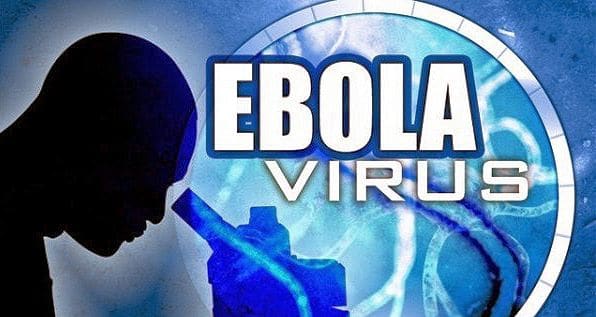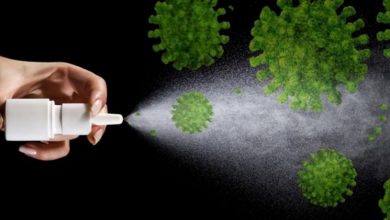
For Ebola, the global market is small, for a large pharmaceutical company there is no strong incentive to create a vaccine, so funding must be sought from the government.
The Ebola epidemic in West Africa highlights the urgent need for a vaccine, which according to researchers could be available within a few years: however, sufficient funds are needed and some difficulties relating to trials on their safety must be overcome. human
by Annie Sneed -July 31, 2014 – The sciences
The latest outbreak of the Ebola virus in West Africa is the worst to date. As of Monday 28 July there are more than 1,200 people infected and at least 672 deaths since this spring. Guinea, Liberia and Sierra Leone all have confirmed cases. A Médecins Sans Frontières official said the outbreak was "totally out of control," according to the report reports NBC News.
Unfortunately, doctors have neither vaccines nor effective therapies. Healthcare workers can only try to support patients' immune systems (by monitoring body fluids, oxygen levels, blood pressure and any other infections) to help them as best they can to fight off the virus.
A vaccine to help fight future Ebola outbreaks, however, could be ready within a few years. Over the past decade, researchers have made significant progress, and vaccines have worked in non-human primates. But raising money for safety trials in humans has been difficult.
"Scientific American" spoke to Thomas Geisbert, a virologist in the Department of Microbiology and Immunology at the University of Texas Medical Branch (UTMB) in Galveston, who has been studying the Ebola virus since 1988 and is currently engaged in vaccine research and development.

Are there any promising vaccines under development for the Ebola virus?
There are several preventive vaccines in development, three to five of which have been shown to fully protect nonhuman primates from Ebola. Some of these vaccines require three or more injections, others just one. Most have been funded by the US government and are in various stages of development, but none are ready for approvals.
The critical point for these vaccines is the phase I trials on humans. We scientists get frustrated because we know these vaccines protect animals and we can't figure out what aspects of the regulatory process are keeping things from moving faster. I can't give an answer why it's taking so long.
Why is the human immune system unable to defeat the virus?
The Ebola virus is usually transmitted by contact and the first cells affected are cells important for the primary immune response: monocytes, macrophages and dendritic cells. They are important because they are the first to recognize that something foreign has entered the body and the first to activate our innate immune system against infection. This makes it difficult to develop an effective immune response against the virus: the body struggles to fight the virus, which multiplies until it invades the main organs of the body.
Can a vaccine counteract these effects?
Here's an example of how a vaccine might work. The VSV vaccine is probably one of the most promising, and is based on a viral vector related to the rabies virus. It is a bullet-shaped particle on the surface of which there is a structural protein called "glycoprotein", which allows the virus to recognize the host cell, bind to it and control the cellular machinery. For a vaccine, we take out the gene that codes for the VSV virus glycoprotein and replace it with a gene that codes for the Ebola glycoprotein. We thus obtain a vaccine that has an Ebola glycoprotein on its surface. Obviously, the virus doesn't behave like Ebola because the rest of its genome isn't Ebola, but since it has Ebola glycoprotein, the body recognizes it as foreign and builds a specific immune response against the Ebola virus.
At what stage is the development of the VSV vaccine?
To the point where we're trying to get the funding to do the human studies.
What are the biological challenges of developing an Ebola vaccine?
 Some vaccines that have a replication "defect", in the sense that they do not replicate, and tend to be safer. Others are more effective, but are "replication competent": examples of this type are the measles vaccine or the yellow fever vaccine. They're usually blocked so they're not as dangerous as a wild virus, but some people may experience an adverse event.
Some vaccines that have a replication "defect", in the sense that they do not replicate, and tend to be safer. Others are more effective, but are "replication competent": examples of this type are the measles vaccine or the yellow fever vaccine. They're usually blocked so they're not as dangerous as a wild virus, but some people may experience an adverse event.
Replication-capable vaccines may require only one injection, while replication-defective vaccines may need an annual booster because they are not efficient. Should we focus on a vaccine that protects humans with a single injection? In Africa it is an almost obligatory choice, because there you are lucky if you find a hospital capable of vaccinating you once. You gain in effectiveness and lose in safety. This is one of the biggest challenges.
Can you give us an estimate of when we might have an effective vaccine against the Ebola virus?
Two to six years, in my opinion. I hate to say this, but it really all comes down to financial support for the small companies developing these vaccines. Human studies are expensive and require a lot of public money. For Ebola, the global market is small, for a large pharmaceutical company there is no strong incentive to create a vaccine, so funding must be sought from the government.
I'd like to see a situation where we try to develop our best vaccine candidates so that we complete Phase I trials as fast as possible. I think we should start with healthcare workers in high risk areas. This outbreak is unique because it has occurred in an area where we have never seen it before, but also because there seems to be a higher percentage of medical personnel who are infected. I've seen all of these vaccines work in numerous animals, and I've never seen an adverse event. I recognize the security concerns, but it would be nice if there was a way to do everything faster. There are people exposed to Ebola, with a 60 to 90 percent chance of dying. I think we have to assess the situation against this background.
(The original of this article was published on July 29, 2014 at www.scientificamerican.com. Reproduction authorized, all rights reserved)
A first victory over the Ebola virus
An experimental vaccine against Ebola
Bellizzi: "The Ebola danger is remote, the disease is transmitted only by direct contact"
The infectious disease specialist of Doctors Without Borders: “It does not spread by air, the incubation ranges from two to twenty-one days. Due to its dynamics, it is difficult for it to get this far"
by PAOLO G. BRERA – 31 July 2014. R.it | Foreign

ROME. Saverio Bellizzi, infectious disease specialist at Doctors Without Borders, was in Africa until a few weeks ago fighting against the Ebola epidemic.
How does the infection happen?
“By direct contact with a sick person, who has very obvious symptoms. The virus is not transmitted by air”.
Can he land in Italy?
"The risk of it arriving from the southern coasts is quite remote, we are not in an alarm situation".
Why?
“For the dynamics of the disease, which has a stormy course. In a week to ten days, symptoms develop which, without adequate treatment, quickly lead to death. Migrants have at least a year of travel behind them to cross the Sahara and find a way to set sail".
What about flights from Africa?
“It's a matter that is dealt with by the English Airports Authority, but all airports in risk areas take the temperature of travelers with effective systems, and forms are filled out to check for symptoms. It's very unlikely to see an Ebola patient walking around an airport: I asked a recovered patient, he told me the fatigue he experienced was the sum total of all the fatigues from all the illnesses he'd had, including malaria. The patients have a devastating fever, they are very tired, it is difficult even to get them on their feet. How can you come into contact with people like this, by touching them or fiddling with their biological fluids or their blood?”.
And who has returned from a risk zone?
“Been there is not enough to suspect you have contracted the disease. You must have had close contact, washed or touched a visibly ill person and then brought your hands to your nose or mouth.
What are the symptoms?
“A fever of 38 or 38.5, usually accompanied by a sore throat. Then come intense fatigue, diarrhoea, vomiting, joint and abdominal pain, headache... And the fever becomes very high".
Who has a doubt what to do?
“The doctor will evaluate whether and where to carry out tests. In most African countries it is now the rainy season, if anything it is probable that he has contracted malaria. The incubation of Ebola ranges from 2 to 21 days: if he develops a fever 4 weeks after his return from Africa, he is sure he has something else”.
What happens to those who get sick?
“It is isolated for monitoring and treatment: hydration, nutrition, drugs for associated pathologies. The aim is to keep the body in good condition to allow it to fight the virus, which is replicated day after day, weakening it more and more".
TO





